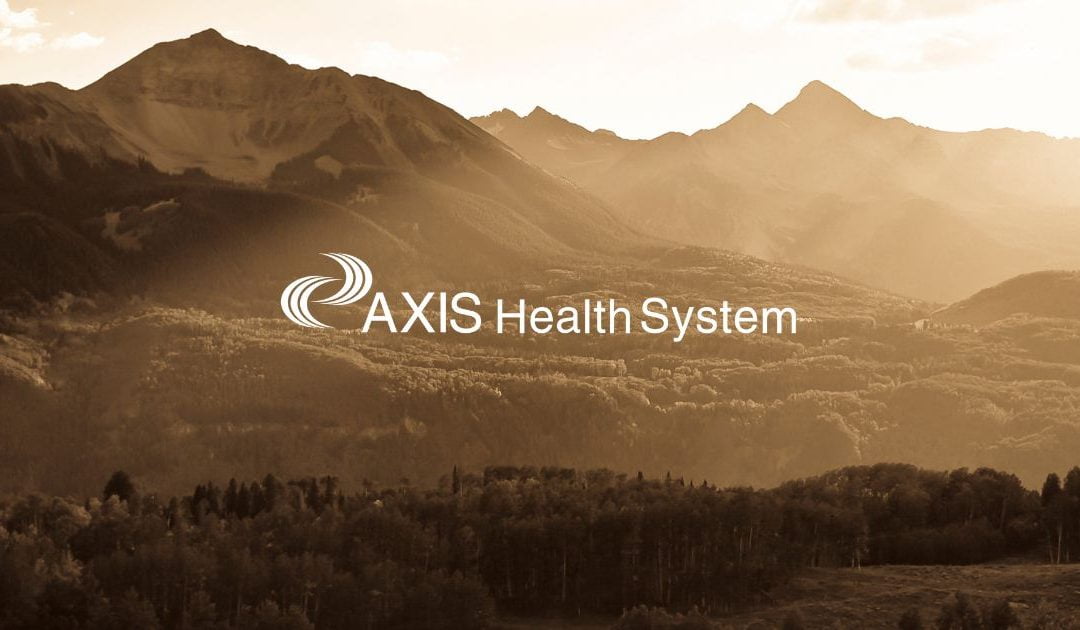Preventing Youth Suicide: Youth Suicide Prevention Program expands in Montrose, Delta, Gunnison, Telluride, Ouray, Ridgway, Norwood, and the West End
By Paul Reich, Community Liaison, Axis Health System
Before the COVID-19 pandemic, youth suicides in Colorado and the country were rising. From 2007 to 2018, the suicide rate in the United States for youth ages 10 to 24 increased by almost 60%, and in Colorado, the number of youth ages 12 to 17 who died by suicide more than doubled from 2007 to 2020.
Since March 2020, youth have faced more mental health challenges as they navigate remote schooling, social distancing, and disruption to their usual activities, along with the general anxiety confronting youth and adults alike during the pandemic. In May of 2021, the Children’s Hospital Colorado declared a pediatric mental health crisis as emergency room visits by adolescents for thoughts of suicide and suicide attempts increased during the preceding 14 months. According to the Centers for Disease Control, the number of emergency room visits for potential suicides by children aged 12 to 17 increased by 22.3% in the summer of 2020 compared to 2019.
Locally, many organizations, including Axis, are working to help prevent youth suicides. As the community mental health center for an 11-county region, Axis has led local efforts to help prevent suicides among our youth, including:
- Working with local schools, law enforcement, and other partners to implement youth suicide prevention protocol.
- Offering education to community members and organizations to teach community members how to recognize the warning signs and to intervene to help those considering suicide.
- Providing staff training at Axis to treat suicidality; and
- Providing 24/7/365 Crisis Regional Crisis Center – Montrose. Since its opening, the Crisis Stabilization Unit f has served almost 2,000 community members and helped provide needed care during a mental health crisis.
Community partners highlighted a critical need to increase support for youth experiencing a suicidal crisis. Nya Greenstone, MSW, LSW program supervisor at Axis, said, “We treated young people who were thinking of suicide and had made a plan, as well as those who came to our Regional Crisis Center – Montrose following a suicide attempt. And we know that youth and families would benefit from continued support. We wanted to go above and beyond the traditional treatment and find a way to support them in their recovery.” Ms. Greenstone found an evidence-based program developed at the University of Michigan that addressed the needs and set about adapting it locally.
The new Youth Suicide Prevention Program is a research-based program that provides care coordination and treatment services to youth and families experiencing a suicidal crisis. The program also provides training and consultation to schools around suicide prevention. Caregivers, families, school staff, and emergency room personnel can refer a young person to the program. The program does not replace the traditional care for adolescents with a history of suicidal thoughts or suicide attempts which can include medication, psychotherapy, group intervention, or partial hospitalization.
In addition to outpatient care, the Youth Suicide Prevention team in the school districts works with the youth and their families to coordinate care and offers youth a 12-week evidence-based intervention called the Youth-Nominated Support Team, which aims to increase the number of caring adults in their life to support them in their treatment. Ms. Greenstone said, “We know that struggling youth benefit from positive connections with trusted adults in their lives. We facilitate the selection of those adults by the young person, provide education to those support persons, and support the young person while in treatment.” Adults selected by the youth (and approved by the guardians for youth younger than 18) may include parents, aunts, uncles, grandparents, as well as teachers, coaches, spiritual leaders, neighbors, and parents of friends.
The young person and their family are supported over 12 weeks following a crisis while receiving professional mental health treatment. Weekly calls, check-ins with the support team, and care coordination among the providers help support the young person in recovery. According to Perri Gipner, the Suicide and Threat Assessment Coordinator at the Uncompahgre Board of Cooperative Services (UnBOCES), said, “Axis’ team will work with the youth, the support group identified by the youth, and the treatment providers to keep the young person in treatment and to encourage positive behaviors. Ultimately, they’ll be there to support the student when they return to school as well.”
Ms. Greenstone emphasized that the program is about supporting the young person after the crisis, “We support the young person—they are at the heart of what we do. But we also know that families need support too following a crisis. Our team can help them as well. We also know that returning to school can be a difficult transition for a young person after a crisis. We work with the youth, their family, and school staff to ensure that their transition back to school is supported.”
The Youth Suicide Prevention program is currently being implemented in regional school districts. The team of 6 members, including a clinical supervisor, will provide coverage in each school district, including Montrose, Delta, Gunnison, Telluride, Ouray, Ridgway, Norwood, and the West End, partly through a collaboration with the UnBOCES.
If you, or someone you know, is living with suicidal ideation, waiting is not an option—your prompt response could save a life. Call Axis at 970.247.5245 or visit our Regional Crisis Center – Montrose at 300 N. Cascade Ave, Montrose, both open 24/7/365 days a year. The Colorado Crisis Services Line can be reached at 1-844-493-TALK (8255) or text “Talk” to 38255.



